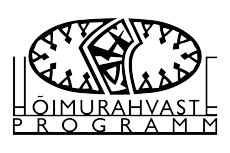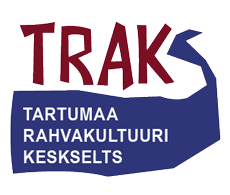Tulka kokkia kiittõlõmma
(Praising the Cook)
Leanne Barbo and choir
In Votian
Tulka kokkia kiittõlõmma!
Üvä kokki, kaunis kokki
keitti supi suuta müütä,
pani soolad meeltä müütä.
Kokk õli tootu Koivisoossa,
koki poika Poolõzmaalta,
ize kokki Inkerimaalta.
Kõik õli saatu, kõik õli tootu:
saatu õlid sarvipääd jäneksed,
tootu õlid tedridõ lehtikorvad,
saiõt tootu Saarõmaaltõ,
viinat tootu Viromaaltõ,
oluõd õmaltõ maaltõ,
peenet saiõt Petterisse.
In English
Come and praise the cook!
Good cook, fine cook
Made the soup tasty,
Added salt to taste.
The cook was brought from Koivisoo,
The cook’s boy from Poland,
The cook brought in from Ingria.
All was given, all was brought:
Hares with horns were given,
Grouses with leafy ears were brought,
Sustenance from Saaremaa,
Vodka from Virumaa,
Beer from own land,
Fine bread from St. Petersburg.
In Votian written language
Tulka kokkia kiittõlõmma!
Üvä kokki, kaunis kokki
keitti supi suutõ müüte,
pani soolõd meelte müüte.
Kokk õli tootu Koivisoossõ,
koki poikõ Poolõzmaaltõ,
ize kokki Inkerimaaltõ.
Kõik õli saatu, kõik õli tootu:
saatu õlid sarvipääd jänesed,
tootu õlid tedrid lehtikõrvõd,
saiõd tootu Saarõmaaltõ,
viinõd tootu Viromaaltõ,
oluõd õmaltõ maaltõ,
peened saiõd Petterisse.
Before leaving the wedding party, the guests thank the cook who had prepared good food. The dishes are special, brought from various faraway places.
The cook was praised while leaving the bride’s home or the groom’s home. The variants written down from Votians contain quite many Ingrian elements. Paul Ariste argues that Votians have borrowed their songs from Ingrians, as, for example, the Ingrian Koivisto has been adopted as Koivisoo in the Votian language.
T M Duńa (Jevdokia) Trofimova, Luuditsa (Tõnu Seilenthal, Tiit-Rein Viitso, Viktor Danilov and others 1973, RKM, Mgn II 2334 f).
T Oudekki Figurova, Rajo, and Maťo Gerassimova, Jõgõperä (Ariste 1986: 45, 75, 86 and Ariste 1960: 60).





